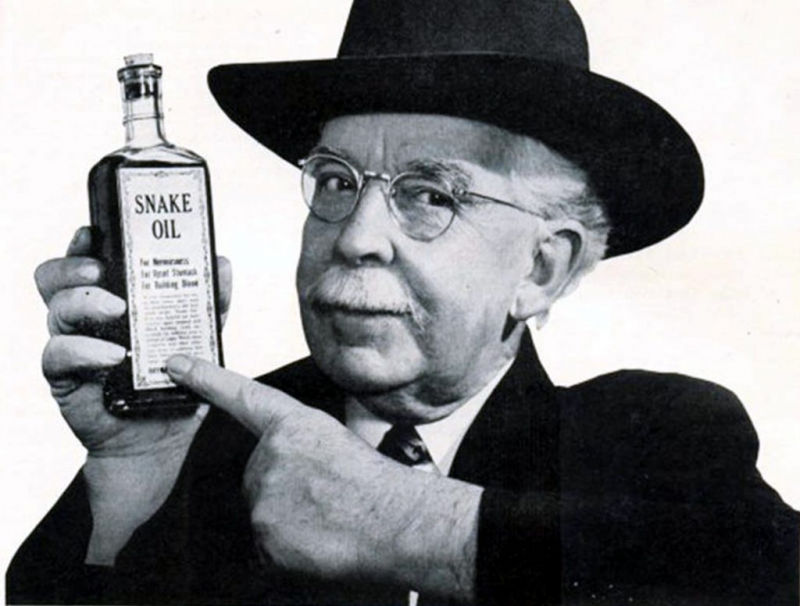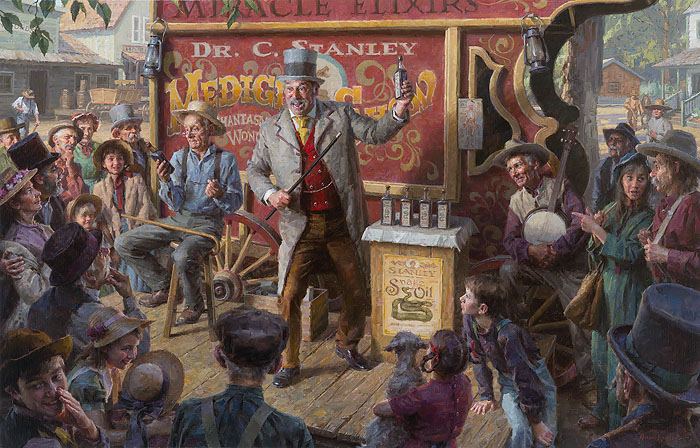Snake Oil Salesman
Nowadays, the term "snake oil salesperson" alludes to a shady fraudster who is pushing some type of bogus treatment, thus you would normally want to avoid them. However, in the past, this wasn't always the case. Although snake oil was a genuinely effective treatment, one individual destroyed it for everyone and permanently altered the meaning of the term. The "Rattlesnake King," Clark Stanley, was that person.
There have been traditional medicines made from snake parts for thousands of years. In this instance, the term "snake oil" refers to an ointment made in the United States in the 19th century by thousands of Chinese immigrants using the oil from their water snakes. This particular brand of snake oil was genuine. Even contemporary studies came to the conclusion that it had therapeutic effects since it functioned as an anti-inflammatory agent in the treatment of bursitis and arthritis. However, as soon as the product gained popularity, a variety of people began selling it. At the time, there was little to no regulation, so these individuals were free to put pretty much anything they pleased in the bottles they sold.
After the Pure Food and Drug Act of 1906, which aimed to restrict the use of patent medications, was passed, this changed. Ten years later, after much delay, they finally got around to discussing snake oil. They used Clark Stanley's Snake Oil Liniment, one of the most well-known snake oils available.
Due to the scarcity of Chinese water snakes in Texas, Stanley preferred to refer to himself as the "Rattlesnake King" and employed rattlesnakes for his product. That is what he said, at least, but when the authorities examined his product, they discovered that it was primarily made of mineral oil, blended with a little fatty oil and additives. There wasn't even a trace of snake oil. Clark Stanley was given the harsh punishment of a $20 fine for his fraud, but he also gave us the term "snake oil" that we still use today and shattered trust in the industry.












